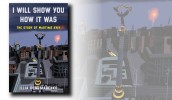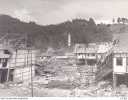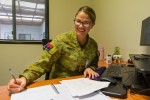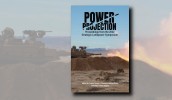Search
Using the filters to the left, click your selection, it will become bold and filter the results, click it again to remove that filter.
The Story of Wartime Kyiv Bloomsbury Publishing , 2024, ISBN 9781639733873, 288 pp, (AUD) $35.99 (hardback) AUTHOR: Illia Ponomarenko REVIEWED BY: John Nash Many books have been written about Russia’s invasion of Ukraine in 2022. Illia Ponomarenko is a well-known and well-regarded Ukrainian journalist who has covered Ukraine’s conflict with Russia for many years, including before the full-scale invasion. I Will Show You How it Was is a very personal account of the build up to invasion, and as the …

Australian Army Occasional Paper No. 34, Surf and Turf Operations , by Joshua Higgins The 2024 National Defence Strategy (NDS) directs the Australian Defence Force (ADF) to optimise for littoral manoeuvre within Australia’s primary area of military interest (PAMI), in response to great power competition and reduced warning times. This strategic environment demands innovative approaches that offset Australia’s vulnerabilities in mass and technology through asymmetry —leveraging strengths against adversary …

Cavalry’s Role in Delivering Asymmetric Effects in the Littoral Domain ‘Force intact. Still fighting. Badly need boots, quinine, money, and Tommy-gun ammunition.’ – 2nd Independent Company Transmission to Australian Northern Force Headquarters, 1942 Introduction The 2024 National Defence Strategy (NDS) directs the Australian Defence Force (ADF) to optimise for littoral manoeuvre in Australia’s primary area of military interest (PAMI). This direction is made in the context of great power competition and …
Josh Higgins is a Royal Australian Armoured Corps Officer. He enjoys expanding his military history library, and occasionally reading from it. When he is not advocating that we should learn from our past mistakes, he is pondering when the Webb Ellis Cup will again grace Australia’s shores. … Joshua …
Some thoughts on the civil-military operations in Australia’s Second World War Borneo Campaign The Australian Army’s primary focus is warfighting, and rightly so, given the Army’s mission . However, ‘what happens after the fighting?’ This question is not one that most of us would often consider, even Royal Australian Engineer (RAE) officers such as myself. Yet perhaps we should. Even our more recent operational experiences in Iraq and Afghanistan demonstrate a general lack of consideration as to ‘what …

Captain Marika Boelen , Royal Australian Engineers, is currently a project engineer at 19th Chief Engineer Works. She had a 15-year career as a land surveyor alongside her Army career until transferring to SERCAT 6 (permanent part-time) in 2025. As a SERCAT 5 officer, Captain Boelen had postings to the 3rd Field Squadron and Adelaide Universities Regiment. She deployed as a troop commander on Kangaroo Island during Operation Bushfire Assist 2019-20. … Marika …
Army MakerSpace About MakerSpace Makerspace is an Army initiative providing a place for learning-by-making and education in innovative approaches, creative thinking, and agile methodologies. All Army personnel are invited to join their local community of makers to gain a professional toolbox of problem-solving techniques to tackle Army’s current and emerging challenges. Makerspace is part of The Battle Lab within Army G7/Forces Command and contributes to realising a Future Ready workforce Locations The …

The Chief of Army Essay Competition and Chauvel Prize 2026 Chief of Army Essay Competition The release of the Defence Strategic Review (2023) and the National Defence Strategy (2024) has presented a new focus and a new set of challenges for the Australian Defence Force (ADF), and the Army in particular. After 25 years of peacekeeping and low-intensity conflict, the Army needs to prepare for high-intensity conflict, most likely in a changing littoral environment The theme of the 2026 Chauvel Prize is …

Chief of Army’s Foreword Welcome to the 2025 edition of the Chief of Army Professional Study Guide. The Australian Army is at once a national institution, a profession and a fighting force, which has proudly served our nation since its federation in 1901. This study guide contributes to maintaining the health of the Army profession. Our profession is expressed through three pillars: our jurisdiction (the unique service that we provide for the society we serve), our expertise (the professional body of …
Proceedings from the 2022 Strategic Landpower Symposium Marine Corps University Press , Quantico VA, 2024, ISBN 9798986259567, 142 pp Editors : Colonel Gregory Cantwell, William Barry, and Major Justin Magula Reviewed By : Shaun Cameron In May 2022, the United States (US) Army War College held their inaugural Strategic Landpower Symposium with the aim of advancing concepts on the role of land power during cooperation, competition, deterrence, and joint all-domain operations. Over two days, original …


